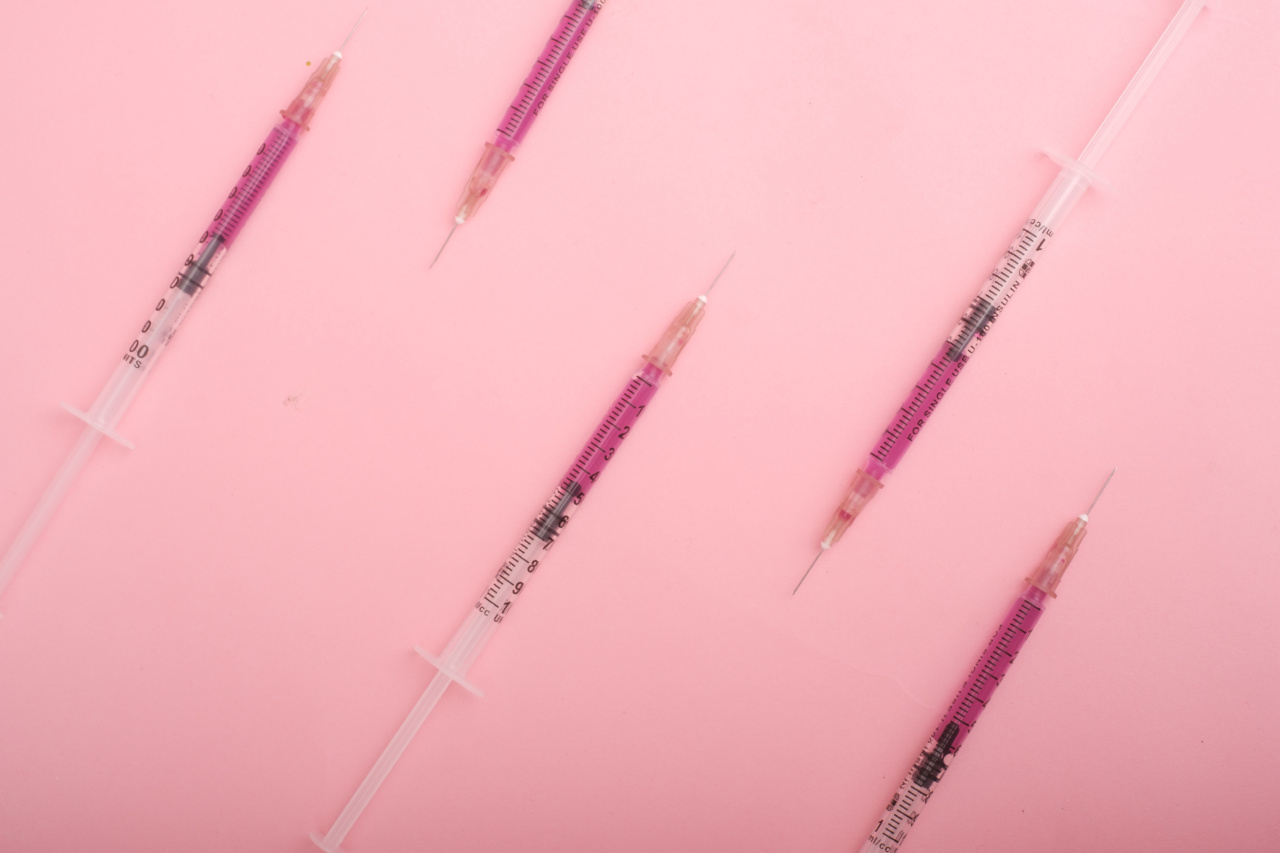Meningitis is a serious and potentially life-threatening infection that affects the membranes surrounding the brain and spinal cord. It can be caused by viruses, bacteria, or fungi, with bacterial meningitis being the most dangerous form.
Vaccination is the best way to prevent meningitis, and it is important for individuals of all ages to get vaccinated to protect themselves and others from this deadly disease.
The Importance of Meningitis Vaccination for Children and Adolescents
Children and adolescents are particularly susceptible to meningitis, and therefore, it is crucial to ensure they are vaccinated.
The most common types of meningitis in this age group are caused by bacterial infections, including Haemophilus influenzae type b (Hib), Neisseria meningitidis (meningococcus), and Streptococcus pneumoniae (pneumococcus).
The Hib vaccine has been instrumental in significantly reducing the number of meningitis cases in young children. It is typically administered in a series of doses during infancy to build immunity.
The meningococcal conjugate vaccine (MCV4) protects against several strains of meningococcus and is recommended for adolescents, particularly those entering college dormitory settings or participating in activities that increase their risk of exposure.
The pneumococcal vaccine is another important immunization for children. It prevents infections caused by the pneumococcus bacteria, which can lead to meningitis, as well as pneumonia, bloodstream infections, and ear and sinus infections.
Meningitis Vaccination for Adults
While meningitis is more prevalent in children and adolescents, adults can also be at risk, especially those with weakened immune systems, college students living in dorms, and individuals traveling to areas where outbreaks have occurred.
Vaccination is recommended for individuals in these high-risk groups to protect themselves and prevent the spread of meningitis.
The most common type of meningitis among adults is pneumococcal meningitis.
Therefore, it is essential for adults to receive the pneumococcal vaccine, especially those aged 65 and older, individuals with certain medical conditions, such as diabetes or chronic lung disease, and smokers.
Meningitis Vaccination for Travelers
If you are planning to travel to regions where meningitis outbreaks have occurred, getting vaccinated is highly recommended. The risk of contracting meningitis is higher in certain parts of Africa, the Middle East, and some countries in Asia.
The meningococcal vaccine is particularly important for travelers visiting the “meningitis belt” in sub-Saharan Africa, which includes countries such as Nigeria, Burkina Faso, and Ethiopia.
It is essential to consult with a healthcare professional or a travel clinic before traveling to determine if you need the meningitis vaccine and which specific type is recommended for your destination.
Common Meningitis Vaccines
Several vaccines are available to protect against meningitis:.
1. Hib Vaccine
The Haemophilus influenzae type b (Hib) vaccine is part of the routine childhood vaccination schedule. It is highly effective at preventing Hib infections, including meningitis, pneumonia, and bacteremia.
2. Meningococcal Conjugate Vaccine (MCV4)
The MCV4 vaccine protects against strains A, C, W, Y, and B of Neisseria meningitidis. This vaccine is recommended for adolescents and young adults, particularly those entering college or living in close quarters, such as dorms or military barracks.
3. Pneumococcal Vaccine
The pneumococcal conjugate vaccine (PCV13) protects against some of the most common strains of pneumococcus bacteria, which can cause meningitis. It is recommended for infants and young children as part of their routine vaccination schedule.
The pneumococcal polysaccharide vaccine (PPSV23) is recommended for adults aged 65 and older, as well as individuals with certain medical conditions.
4. Meningococcal Polysaccharide Vaccine (MPSV4)
The MPSV4 vaccine protects against some strains of Neisseria meningitidis and is typically recommended for individuals aged 56 and older who are at increased risk of meningococcal disease.
Meningitis Vaccine Side Effects and Safety
Like any vaccine, meningitis vaccines can cause side effects, but they are generally mild and temporary. Common side effects include pain or redness at the injection site, headache, and fatigue.
Serious side effects are rare but can include severe allergic reactions.
Meningitis vaccines have undergone extensive testing to ensure their safety and effectiveness. The benefits of vaccination far outweigh the risks, considering the potential severe consequences of meningitis infection.
Meningococcal Outbreaks and the Importance of Herd Immunity
One of the main reasons for promoting meningitis vaccination is to achieve herd immunity.
This occurs when a significant portion of the population is vaccinated, protecting not only those who received the vaccine but also those who cannot be immunized, such as infants, pregnant women, and individuals with compromised immune systems.
Meningococcal outbreaks can occur in close-quarters settings, such as universities, military bases, or overcrowded areas. By ensuring a high vaccination rate, the spread of the disease can be prevented or controlled, protecting the entire community.
Conclusion
Meningitis is a potentially life-threatening infection that can be prevented through vaccination. It is important for individuals of all ages to get vaccinated to protect themselves and others from this serious disease.
Whether it’s for children, adolescents, adults, or travelers, appropriate meningitis vaccines can significantly reduce the risk of infection and its severe consequences. Consult with a healthcare professional or primary care provider to ensure you are up to date with your meningitis vaccines and protected against this dangerous illness.




























